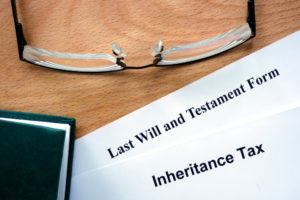No doubt you will have seen reports in the media such as these relating to the cause of a daughter’s challenge to her late mother’s will in order to receive some form of inheritance. Some commentators are suggesting that the case in some senses limits the ability of people to deal with their estates under their Wills.
- http://www.theguardian.com/uk-news/2015/jul/28/daughter-wins-164000-decade-long-legal-battle-mother-will-charities
- http://www.bbc.co.uk/news/uk-england-beds-bucks-herts-33684937
However, as our Private Client team explains, the inheritance situation is a little more complicated than that. It is generally not possible to exclude children and dependants entirely as potential beneficiaries from your estate. However, what is at issue is likely to be the amount of any claim that could be made.

A copy of his article appears here:
Headline in the media “Will battle daughter wins £164,000”!
We have all seen the latest reports (28th July 2015) about the Court of Appeal judgement (27th July) in the “Ilott” case. The media have seen fit to report that an estranged daughter could challenge her late mother’s Will (where everything was left to charity) claiming that although the mother had expressed her wish that nothing be left to the daughter, the daughter is entitled to part of the estate and the Court has ruled that she can receive about a third of the whole estate.
Bearing in mind that this has been reported in “news” media that regards “news” as equal in importance to “sport” and “entertainment” – the first clue is from where such information comes. Then, confusingly, some of the great and good of “legal experts” have pronounced that this could reduce the general freedom of testamentary disposition – the right to leave your estate to whomsoever you wish regardless of family and other commitments.
Inheritance Act 1975
Bad news first. Since the Inheritance (Provision for Family and Dependants) Act 1975 there has been a right for spouses/civil partners, children (and others maintained by a deceased person) to claim against the estate. For spouses/civil partners, that claim can be for a “reasonable financial provision” and for children it is limited to such a provision but “for his/her maintenance”. The Ilott case is not about the right of the daughter to claim, it is almost exclusively about the amount of the claim in financial terms.
Since 1975 one cannot disinherit “dependents”, that is, spouses/civil partners, children and those one has maintained ‘will he nill he’ or without just cause. At Bishop & Sewell LLP we always advise clients to set out a very clear and cogent case for excluding some parties from their Wills and at times we have to advise clients to leave gifts by Will to those they would prefer to exclude because the potential claim against the estate is so strong an exclusion is unlikely to succeed. In fact, there are times when gifts by Will are set at such a level that it’s not worthwhile a claimant spending the time money and effort challenging it.
Our advice stands. The Ilott case changes little although it might (unless this case is overruled by a higher court) affect the amount of a gift in a Will to avoid Inheritance Act 1975 claims.
In cases where family or maintained persons are to be excluded from your Will for one reason or another, it is imperative that you explain to us in detail why you wish to make the exclusion and take our advice on the merits of your decision and the provisions you need to make in your Will or the evidence we need to support your wishes.
Recent cases, including the Ilott case, merely show that these considerations are essential and they add new aspects to the financial and general calculations needed.
In conclusion: If you haven’t made a Will – make one! Otherwise the law decrees who inherits. If you have made a Will and you have excluded/limited gifts to any family member or you have excluded/limited gifts to anyone you maintain in any way (voluntarily or by Court order) then check with us that you have a Will that still meets the latest case law requirements. You can contact us to review your Will from time to time to ensure it remains valid and tax efficient and watertight given the latest case law.
If you are making a will in circumstances where these sorts of exclusions may arise, or if you are a dependant facing a situation where it appears that you have been ‘cut out’ of an estate, then expert advice should be sought as early as possible. The Private Client team at Bishop & Sewell LLP have extensive experience of guiding testators through the necessary steps to give best effect to their intentions and similarly, in conjunction with our litigation team, we have experience of contested probate matters.
If you would like to know more, please contact the Private Client team by emailing privateclient@bishopandsewell.co.uk or calling 020 7631 4141 and asking to speak to Andrew Murray, or a member of the Private Client team.




